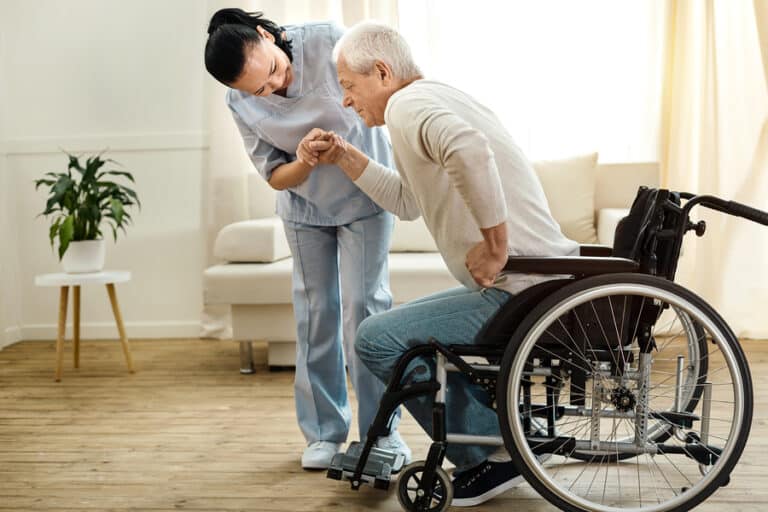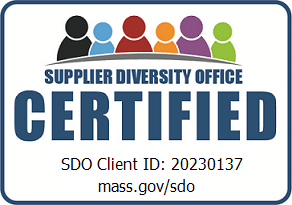While your elderly loved one may naturally slow down as he ages, for some seniors, the loss of muscle mass and strength greatly inhibits their ability to do the things they want to do. This can be due to many factors, like sarcopenia.
What is Sarcopenia
Sarcopenia is defined as the loss of strength and function of the muscles due to muscle loss. It generally affects just the elderly population and can reduce their ability to perform daily tasks. The main target of sarcopenia is the musculoskeletal system which when weakened, can lead to more falls, frailty, and bone fractures. It affects both sexes equally and is often at an increased risk of developing for the obese.
Risk Factors for Sarcopenia
The natural aging process is where sarcopenia begins and then without proper care, it can increase until the point where it affects your elderly loved one’s ability to be independent.
Everyone loses muscle mass as they age. It generally begins in the 30s and 40s, and then increases during the ages of 65-80. While everyone loses some muscle mass as they age, if your loved one has sarcopenia, he will lose it more quickly than most and feel the effects more greatly.
Other than age, these risk factors increase the possibility of your loved one developing sarcopenia:
- Obesity
- Inactivity
- Chronic diseases like cancer and diabetes
- Malnutrition
- Sarcopenia Symptoms
How do you know if your loved one has sarcopenia or is simply living with reduced muscle mass due to normal aging? When visiting your loved one’s doctor, you can ask them to perform a strength test where the doctor will ask your loved one (and you if you are there) some questions about how he manages certain actions such as getting out of a chair, using the stairs, and lifting heavy objects.
Some key symptoms of sarcopenia that you may notice in your loved one are:
- An inability to complete daily tasks. It may be too tiring to walk the dog, or too hard to carry the laundry up the stairs. Or if he does so, he may be extremely exhausted afterward.
- He may have less stamina than he used to. If you used to go on long walks all of the time, but now he’s too tired to carry on after 10 minutes, that may be a symptom of sarcopenia.
- His gait is very slow.
- Stairs have become a struggle for him to ascend or descend.
- He struggles with balance and has either fallen or has had some near misses where he almost fell.
Managing Sarcopenia Symptoms
While sarcopenia cannot be cured, you may be able to help your loved one reduce the lifestyle choices that make the condition worse. Implementing a more healthy diet to reduce obesity can help, as well as making sure the foods he eats are rich in protein and other muscle-building nutrients. The doctor may recommend resistance-based strength training to help him build up his muscle mass.
Preventing Falls Through Senior Fall Risk Management
Since falling is a big concern for those with sarcopenia, you should consider having a senior fall risk management team come to his home to help him implement changes and practices that will reduce his risk of a fall. Senior fall risk management can help you make his home more safe for him as he manages his condition so that a fall won’t set him back in his progress.
If you or an aging loved one are considering senior fall risk management in Needham, MA, please contact the caring staff at PlatinumCare + today. Call (617) 237-0867.
PlatinumCare + was born out of the desire and passion to provide the very best home health care possible in Brookline, Dover, Newton, Needham, Watertown, Weston, Cambridge, Lincoln, Sudbury, Belmont, Boston MA, and surrounding areas.
All with decades of experience, Tim in IT Operations, Support, and Management, Brenda in Client Relations, Healthcare Services & Sales Management, and Anne in Healthcare as a Nurse Practitioner combined their skills to form what is now PlatinumCare +.
As immigrants to the US, all came from backgrounds where Healthcare for aging parents was a responsibility of the immediate family and the entire community. Aging, sick, or terminal community members were cared for physically, emotionally, and financially by family, friends, including strangers! This community approach, Healthcare with a difference, delivered with the utmost love, care, sacrifice, and passion, forms the basis of how PlatinumCare + grounds itself.
- What Do Seniors Need to Know About Smoking? - May 28, 2025
- Five Steps to Preventing Falls for Seniors - April 25, 2025
- Why Do Seniors Lose the Ability to Talk and What Can Families Do? - April 8, 2025




